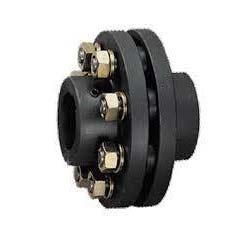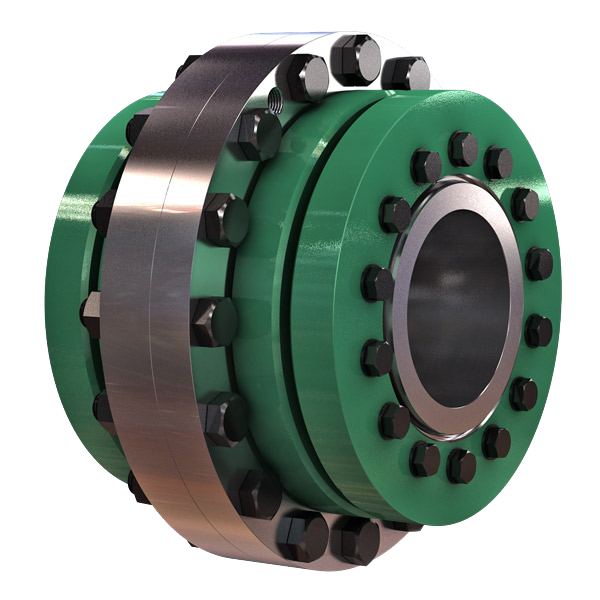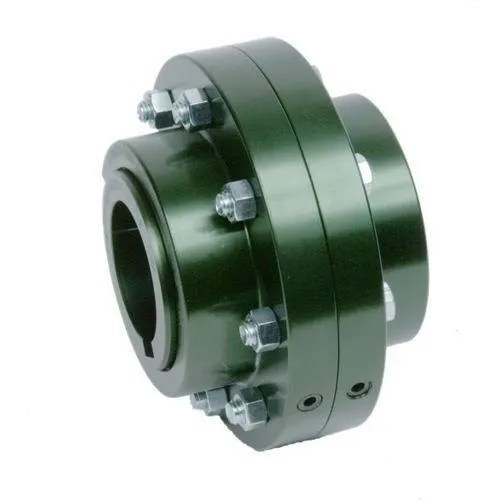Product Description
Product Details
| Product Name | Socket-welded Full Coupling |
| Material | Stainless steel: 201,TP304,TP316, TP304L, TP316L, 304L, 316L, TP321, TP310S, 904L etc. Carbon steel: A105, Q234, Q235, X52, F60,F70, Y60, Y70 etc. Duplex steel: 2205(S31803), S32205, 2507(S2750), S3276 etc. Other special: C70600, 254MO |
| Connection | Socket Welding |
| Size | 1/8″, 1/4″, 3/8″, 1/2″, 3/4″, 1″, 1-1/4″, 1-1/2″, 2-1/2″, 3″, 4 ” etc |
| Standard | ASME, ANSI, MSS-SP, GB etc |
| Application | Pipe lines connection of water, steam, air, gas, oil etc |
| Technics | Forged, Casting |
Socket Welding
| DN | Nom Pipe Size | B2 | C1 | D2 | E2 | J (Min) | |
| Avg | Min | ||||||
| 3000LB | |||||||
| 6 | 1/8 | 10.8 | 3.18 | 3.18 | 6.9 | 6.5 | 9.5 |
| 8 | 1/4 | 14.2 | 3.78 | 3.30 | 9.3 | 6.5 | 9.5 |
| 10 | 3/8 | 17.6 | 4.01 | 3.50 | 12.6 | 6.5 | 9.5 |
| 15 | 1/2 | 21.8 | 4.67 | 4.09 | 15.8 | 9.5 | 9.5 |
| 20 | 3/4 | 27.2 | 490 | 4.27 | 21.0 | 9.5 | 12.5 |
| 25 | 1 | 33.9 | 5.69 | 4.98 | 26.7 | 12.5 | 12.5 |
| 32 | 1-1/4 | 42.7 | 6.07 | 5.28 | 35.1 | 12.5 | 12.5 |
| 40 | 1-1/2 | 48.8 | 6.35 | 5.54 | 40.9 | 12.5 | 12.5 |
| 50 | 2 | 61.2 | 6.93 | 6.04 | 52.5 | 19.0 | 16.0 |
| 65 | 2-1/2 | 73.9 | 8.76 | 7.67 | 62.7 | 19.0 | 16.0 |
| 80 | 3 | 89.8 | 9.52 | 8.3 | 78.0 | 19.0 | 16.0 |
| 100 | 4 | 115.2 | 10.69 | 9.35 | 102.3 | 19.0 | 19.0 |
| 6000LB | |||||||
| 6 | 1/8 | 10.8 | 3.96 | 3.43 | 4.0 | 6.5 | 9.5 |
| 8 | 1/4 | 14.2 | 4.60 | 4.01 | 6.4 | 6.5 | 9.5 |
| 10 | 3/8 | 17.6 | 5.03 | 4.37 | 9.2 | 6.5 | 9.5 |
| 15 | 1/2 | 21.8 | 5.97 | 5.18 | 11.8 | 9.5 | 9.5 |
| 20 | 3/4 | 27.2 | 6.96 | 6.04 | 15.6 | 9.5 | 12.5 |
| 25 | 1 | 33.9 | 7.92 | 6.93 | 20.7 | 12.5 | 12.5 |
| 32 | 1-1/4 | 42.7 | 7.92 | 6.93 | 29.5 | 12.5 | 12.5 |
| 40 | 1-1/2 | 48.8 | 8.92 | 7.80 | 34.0 | 12.5 | 12.5 |
| 50 | 2 | 61.2 | 10.92 | 9.50 | 42.9 | 19.0 | 16.0 |
| 9000LB | |||||||
| 15 | 1/2 | 21.8 | 9.35 | 8.18 | 6.4 | 9.5 | 9.5 |
| 20 | 3/4 | 27.2 | 9.78 | 8.56 | 11.1 | 9.5 | 12.5 |
| 25 | 1 | 33.9 | 11.8 | 9.96 | 15.2 | 12.5 | 12.5 |
| 32 | 1-1/4 | 42.7 | 12.14 | 10.62 | 22.8 | 12.5 | 12.5 |
| 40 | 1-1/2 | 48.8 | 48.8 | 12.70 | 11.12 | 28.0 | 12.5 |
| 50 | 2 | 61.2 | 13.84 | 12.12 | 38.2 | 19.0 | 16.0 |
Our Advantages
01. Customization
Get a perfect, custom pipe coupling
02. Advanced Technique
Mature and advanced equipment and professional test engineers ensure high quality products
03. Excellent Quality
Real material with uniform wall thickness
Smooth surface
Strong tensile strength
Corrosion resistance
Long-term use
Appilcation
Transportation
About Us
Founded in 2571, our company, HangZhou Dejia Special Steel Co., Ltd is specialized in producing various products such as elbows, tees, reducers, caps, flanges and valves. We can produce products according to National standard, American standard etc. It’s our feature that we can produce products of any size ad per customers’ special demands.
Our company CHINAMFG on honesty, continuity and transparency with our clients. We would like to cooperate with global customers and make the good protection project in world market.
Why choose our company? We features scientific and rational design, advanced production process, quality manufacturing materials, comprehensive security protection and first-class after-sales service.
FAQ
Q: What are your main products?
A: We specialize in producing a wide range of valves, elbows, flanges, Tee, Cross, gaskets etc.
Q: How long is your delivery time?
A:Usually it’s 15-30 days all the best or it’s more than 30 days according to the quantity.
Q: Do you provide samples? Free or charge?
A:Yes, we’d like to offer you samples but you have to cough up dough for shipping.
Q: How do you guarantee the quality of your products?
A: Before mass production, a few products made by our engineers for conduct tests. All products must be checked before shipping.
Q: How about your service?
A: Xihu (West Lake) Dis.g to the concept of ” Service Supremacy”, we have pre-sale service, on-purchase service and after-sales service.
Q: About packing?
A: Depending on the properties of the product, choose its appropriate packaging to protect the item from damage and allow you to purchase at ease.
Q: About color difference?
A: All products are shot in real objects, and there will be a slight degree of color difference between the real thing and the picture due to the shooting light, the color value bias of the display, and the individual’s understanding of color. Colour is subject to the goods received.
Q: What size can your company produce?
A: We have all the common sizes on the market. In addition, we can also customize according to your needs, whether its size or material.
/* January 22, 2571 19:08:37 */!function(){function s(e,r){var a,o={};try{e&&e.split(“,”).forEach(function(e,t){e&&(a=e.match(/(.*?):(.*)$/))&&1

Can Flange Couplings Be Used in Applications with Varying Operating Temperatures?
Yes, flange couplings can be used in applications with varying operating temperatures. However, the selection of the appropriate flange coupling material is essential to ensure reliable performance and longevity under these conditions.
The operating temperature of a flange coupling depends on several factors, including the type of material used, the surrounding environment, and the specific application. Here are some key considerations:
- Temperature Rating of Material: Flange couplings are available in various materials, such as steel, stainless steel, aluminum, and different alloys. Each material has its temperature rating, which indicates the maximum temperature the coupling can handle without compromising its mechanical properties. It is crucial to select a flange coupling made from a material that can withstand the highest expected operating temperature in the application.
- Thermal Expansion: Temperature variations can cause thermal expansion and contraction of the connected equipment and shafts. Flange couplings must be able to accommodate these changes in length without imposing excessive forces on the machinery. Flexible couplings with certain designs, such as those with elastomeric elements, can better handle thermal expansion and help minimize stress on the system.
- Lubrication: Operating at high temperatures may require the use of specialized high-temperature lubricants to ensure smooth operation and reduce friction and wear between the coupling’s moving parts. Proper lubrication is essential to prevent premature failure and to maintain the coupling’s performance over time.
- Environmental Factors: The surrounding environment can also influence the operating temperature of the flange coupling. For example, couplings used in industrial settings may be exposed to hot processes or elevated ambient temperatures. In such cases, the coupling’s material and design should be selected to withstand the specific environmental conditions.
It is crucial to consult the manufacturer’s guidelines and technical specifications to determine the suitable temperature range for a particular flange coupling model. Additionally, considering the application’s operating conditions, including temperature variations, helps in choosing the right flange coupling to ensure reliable and safe performance in a wide range of temperature environments.

Can Flange Couplings Be Used in Food Processing and Pharmaceutical Industries?
Yes, flange couplings can be used in food processing and pharmaceutical industries, provided they meet certain requirements and standards to ensure hygiene and product safety. These industries have stringent regulations and guidelines to prevent contamination and maintain the quality and purity of their products. When selecting flange couplings for such applications, several considerations must be taken into account:
- Material Selection: The flange coupling material must be food-grade or pharmaceutical-grade and comply with industry-specific regulations. Stainless steel, particularly austenitic grades like 316L, is commonly used due to its excellent corrosion resistance and ease of cleaning.
- Hygienic Design: Flange couplings for these industries should have a hygienic design that minimizes crevices, dead spaces, and surface roughness where bacteria or contaminants could accumulate. Smooth surfaces and seamless construction help facilitate thorough cleaning and sterilization.
- Sealing and Lubrication: Proper sealing is essential to prevent any potential leaks or ingress of contaminants. Food-grade or pharmaceutical-grade lubricants should be used to ensure that there is no risk of contamination from the coupling’s lubrication.
- Certifications and Compliance: Flange couplings intended for use in food processing and pharmaceutical industries should have relevant certifications, such as FDA (U.S. Food and Drug Administration) approval, EU regulations (e.g., EC No. 1935/2004), and compliance with industry standards like 3-A Sanitary Standards.
- Cleanability: Flange couplings should be designed for easy disassembly and cleaning to maintain the required hygiene standards. This may involve quick-release or tool-less designs that allow for frequent inspection and cleaning without impeding production processes.
- Resistant to Corrosive Cleaning Agents: In food processing and pharmaceutical industries, aggressive cleaning agents may be used. The flange coupling material should be resistant to these substances to avoid degradation and maintain the coupling’s integrity over time.
By meeting these criteria, flange couplings can be safely used in food processing and pharmaceutical applications without compromising product quality or safety. It is crucial to work with reputable manufacturers or suppliers who understand the specific requirements of these industries and can provide couplings that adhere to the necessary standards.

What is a flange coupling and how does it work?
A flange coupling is a type of rigid coupling used to connect two shafts together in a mechanical system. It consists of two flanges, one on each shaft, which are bolted together to form a solid and robust connection. Flange couplings are widely used in applications where precise alignment, high torque transmission, and zero backlash are critical.
The key components of a flange coupling include:
- Flanges: The flanges are circular discs with holes around the perimeter for bolting them to the respective shaft ends. The flanges are made from materials such as steel, cast iron, or aluminum, depending on the application requirements.
- Fasteners: High-strength bolts or studs with nuts are used to fasten the flanges together securely. The number and size of the bolts depend on the size and torque capacity of the coupling.
- Gaskets: In some cases, gaskets or spacers are used between the flanges to provide insulation, prevent corrosion, or compensate for any slight misalignments between the shafts.
How a flange coupling works:
- The two shafts that need to be connected are brought together with their respective flanges facing each other.
- The flanges are aligned precisely to ensure that both shafts are in perfect axial alignment. Proper alignment is essential to prevent excessive loads on the bearings and to ensure efficient torque transmission.
- Once the flanges are aligned, high-strength bolts or studs are inserted through the holes in the flanges, and nuts are fastened tightly to hold the flanges together securely.
- The tight connection between the flanges creates a rigid joint between the shafts, allowing torque to be transmitted from one shaft to the other with minimal losses.
- Flange couplings are designed to have zero backlash, meaning there is no play or free movement between the shafts when the direction of rotation changes. This feature ensures precise and immediate power transmission between the connected shafts.
Flange couplings are commonly used in various industrial applications, including heavy machinery, pumps, compressors, and marine propulsion systems. They are preferred when a reliable, high-torque transmission with precise alignment is required. However, they do not offer flexibility to accommodate misalignment, which is a limitation compared to flexible couplings. Therefore, proper alignment during installation is critical to avoid premature wear and failure of the coupling and connected equipment.


editor by CX 2024-04-12
Leave a Reply